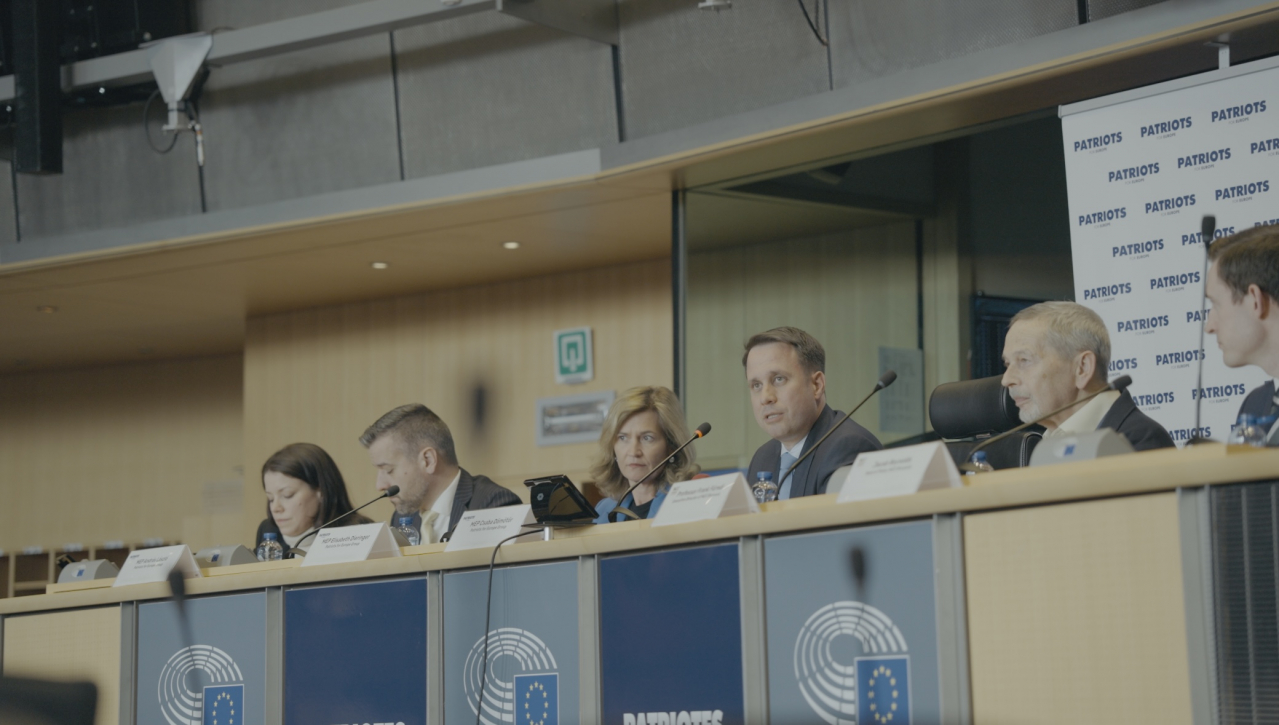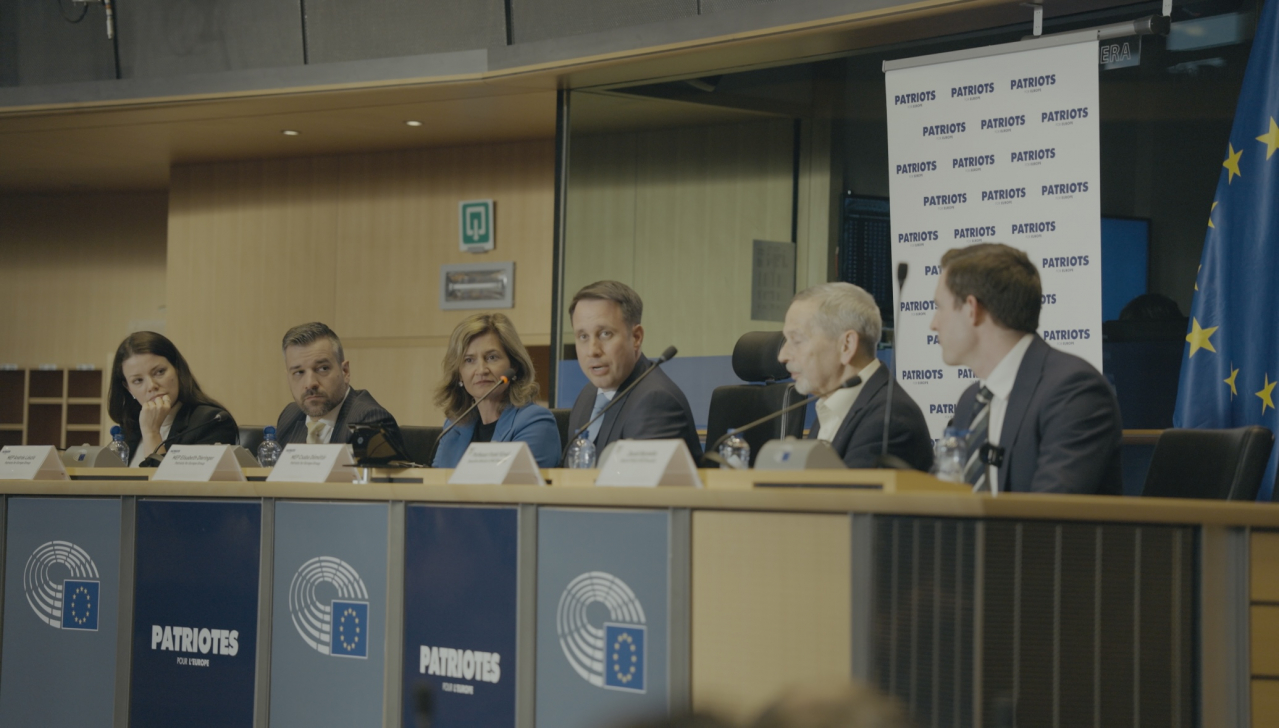Reading time: 4 minutes
On the afternoon of March 26, 2025, at the invitation of members of the "Patriots for Europe" EP group, Csaba Dömötör (Fidesz) and Elisabeth Dieringer (FPÖ), MCC Brussels presented its current report on NGO networks operating in Brussels. The event was attended by more than 130 participants at the European Parliament.
"If NGOs, or non-governmental organizations, would immediately run into trouble if they were to be cut off from state funding, then it clearly shows that they are indeed government organizations and not representatives of civil society," explained MEP Csaba Dömötör. Patriots are committed to uncovering which organizations the European Union supports with taxpayers' money, organizations that pursue goals rejected by the majority of European citizens, such as the abolition of borders, mass migration, and the introduction of censorship in the digital sphere. Therefore, Patriots have posed 86 questions to the European Commission, including requests for the disclosure of the amounts of support and the contracts with NGOs. Although there could be more than ten thousand such contracts, the European Commission has so far refused to answer these questions. However, Patriots will not deviate from their goal and will continue their work for transparency, as the EU mainstream currently plans to replace missing USAID funds for NGOs from the EU budget.
"Not only does the EU support NGOs, but this issue also arises in many member states," continued MEP Elisabeth Dieringer. The German elections have shown how a left-wing government can deploy NGOs against the right-wing opposition. The lion's share of NGOs is tied to the left, and therefore they contribute to the suppression of right-wing views across the Union.
The almost panic-like reactions of the left to someone demanding transparency regarding NGO support show how much they are a cornerstone of the left's power apparatus. Frank Füredi, Executive Director of MCC Brussels, pointed out in his comment that NGOs are the vanguard of moral imperialism. "They do not understand the problems of ordinary people, of civil society, but always believe that they know better." This attitude naturally resonates very well with the interests of the EU elites, as they have found a "nodding club" in NGOs in the absence of a true European civil society. What exactly this means was soon clarified by Jacob Reynolds, head of policy at MCC Brussels, who summarized the reports of MCC Brussels. "Personally, what really set me off was when we discovered that Guy Verhofstadt, who is indeed a special friend of the Hungarians, has a private NGO that received several million euros," said Reynolds. In the so-called "problematic countries," i.e., Hungary and Poland, NGOs receive particularly large amounts of money from the EU. Thematically, it is clear that gender ideology and so-called environmental protection are the main areas supported by the EU's NGOs. "This can lead to such absurd fruits as the EU funding NGOs for gender-sensitive fights against air pollution." MCC Brussels will continue its investigative research in this area, as many EU programs are still awaiting scrutiny.
András László MEP (Patriots for Europe, Fidesz), added: The correct designation for an NGO would actually be "government-established non-governmental organization." Moreover, the independence and diversity of the media often suffers, as the EU often pays NGOs to subscribe to certain media, promote them, and constantly feature in them. "It is no coincidence that these media then echo the positions of the EU mainstream."
After the comments, participants had the opportunity to ask questions, and among others, representatives of NGOs took advantage of this opportunity. Patriots thanked MCC Brussels for its work, and Frank Füredi stressed: "As long as Patriots in the European Parliament can use the tools of MEPs and contribute to the uncovering of NGO networks, MCC Brussels and even every citizen can contribute to this task. As long as NGOs are alone on the field, they will win, therefore a real civil society must organize itself in Europe."



